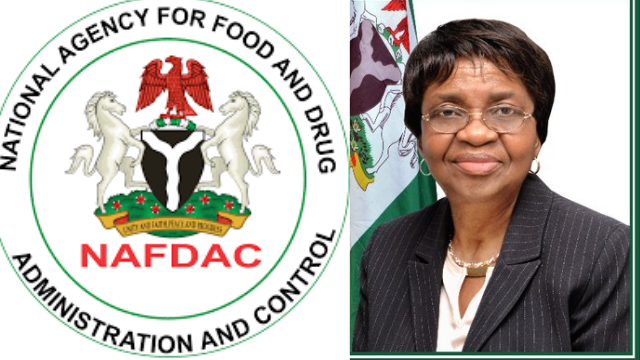The National Agency for Food and Drug Administration and Control (NAFDAC) has expressed delight at the recent executive order issued by President Bola Tinubu directed at increasing local production of healthcare products and said it would reduce cost healthcare equipment and consumables.
NAFDAC, in a statement on Saturday by its Director-General, Professor Mojisola Adeyeye, said it was happy at the executive order because it would transform the sector and also promote local investments in the Nigerian healthcare sector.
President Tinubu signed an executive order to transform Nigeria’s healthcare sector by increasing local production of healthcare products, reducing costs of healthcare equipment and consumables, and promoting local investments.
The initiative, according to a statement by the agency, was part of the Nigeria Health Sector Renewal Investment Initiative (NHSRII) which addresses longstanding challenges and aims to improve health outcomes for Nigerians.
The statement said “key provisions of the order include such measures as zero tariffs and excise duties: Exempting specified pharmaceutical machinery, equipment, goods, and accessories from tariffs and excise duties to reduce production costs and make healthcare products more affordable.”
It also covers “special waivers on pharmaceutical inputs: APIs, excipients, and other essential raw materials, including those for long-lasting insecticidal nets (LLINs) and rapid diagnostic kits,” saying these would “benefit from zero tariffs, excise duties, and VAT, lowering the price of essential medicines and medical supplies.”
The executive order stated that agencies like the Nigeria Customs Service, NAFDAC, SON, and FIRS are mandated to ensure swift implementation, pointing out that “the waivers and exemptions are valid for two years from the effective date.”
Adeyeye noted the negative impact of high cost of the covered materials in Nigeria’s healthcare sector, saying “the perennial and persistent costly challenge of importation of all materials needed for manufacturing (except water) by local manufacturers became an open sore.
“As Director General, my professional heart ached for local manufacturers considering the import duties they have to pay for all materials, some packaging materials and equipment.
“I have advocated for zero tariffs since my assumption of office with a limited moratorium to give local manufacturers industrial breathing space to do what they know how to do best – manufacturing quality medical products.”
She noted that the Tinubu administration and the Coordinating Minister of Health and Social Welfare, Prof Mohammed Ali Pate, and Coordinating Minister of State for Health and Social Welfare, Dr. Tunji Alausa, put the interest of Nigerians before their own interest on the matter.
According to her, this intervention had given local manufacturers a chance to excel and be competitive and explained that part of the gains was reducing the high cost of medicines by lowering tariffs and providing special waivers.
“The executive order aims to reduce the prohibitive costs of medicines and other pharmaceutical products, making healthcare more affordable for Nigerians.
“It will also boost local industry by encouraging local manufacturing which will create jobs, stimulate economic growth, and reduce dependence on imports, ensuring a reliable supply of essential healthcare products,” Adeyeye stated.
